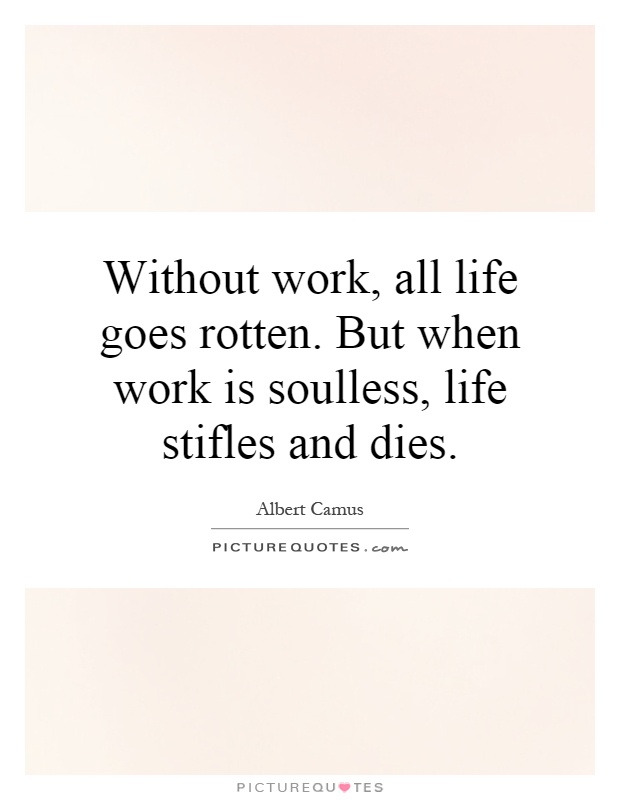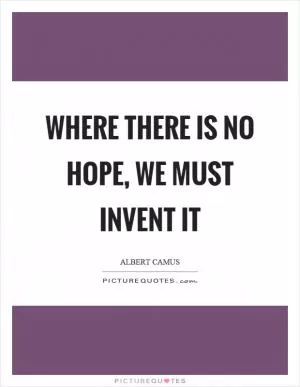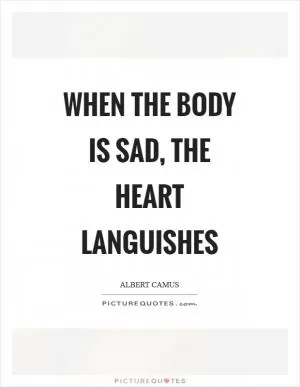Without work, all life goes rotten. But when work is soulless, life stifles and dies

Without work, all life goes rotten. But when work is soulless, life stifles and dies
Albert Camus, a renowned French philosopher and author, believed that work is an essential aspect of human life. In his essay "The Myth of Sisyphus," Camus explores the concept of the absurdity of life and the importance of finding meaning in the face of a seemingly meaningless existence. He argues that without work, all life goes rotten, but when work is soulless, life stifles and dies.Camus believed that work is a fundamental part of human existence, providing structure, purpose, and meaning to our lives. Without work, we are left adrift, lacking direction and motivation. Work gives us a sense of accomplishment and fulfillment, allowing us to contribute to society and make a meaningful impact on the world around us. Without work, we risk falling into a state of stagnation and decay, as our potential remains untapped and our talents go to waste.
However, Camus also recognized the dangers of soulless work, where individuals are trapped in monotonous, repetitive tasks that offer no sense of fulfillment or purpose. In such situations, work becomes a burden, draining our energy and stifling our creativity. When work is devoid of meaning, life loses its vitality and passion, leading to a sense of emptiness and despair.
Camus believed that the key to finding meaning in work lies in embracing the absurdity of life and accepting the inherent challenges and uncertainties that come with it. By approaching work with a sense of purpose and authenticity, we can transcend the limitations of our existence and find fulfillment in the face of adversity.












 Friendship Quotes
Friendship Quotes Love Quotes
Love Quotes Life Quotes
Life Quotes Funny Quotes
Funny Quotes Motivational Quotes
Motivational Quotes Inspirational Quotes
Inspirational Quotes